On Sensitivity, Sadness, and Noticing Things
Or: Scattered Thoughts On Seasonal Change
By September, good weather leaves me with an unshakable sense of anxiety. It’s too much pressure. Any day could be the last “good” day. Maybe, even, it already happened and my standards for what makes good weather have just dropped. The sunshine becomes nothing more than a reminder of the coming grey, dark days—things that would be enjoyable in their own right but seem foreboding when contrasted with the espresso-smooth sunlight.
I think about a lot of things this way. I can’t handle when things are good because it reminds me of how empty I’ll feel in their absence; I’d rather just force the good out, tell myself it was my choice all along, assume no risk because I’ve kept no hope.
This is, naturally, an incredibly empty way to live.
The pleasant September days have now transpired into pleasant October days, and the yellow daylight and rosy cheeks they bring seem to me to beam only as a beacon for the coming winter and the inevitable die-off of all things green. I have no money, little time, and ever-present body image issues. The weather is beautiful and I haven’t done laundry in a month.
There are clinical words for the way I feel most of the time, words that you’ll find listed as symptoms of potential diagnoses in textbooks and psychology curricula. Sometimes it’s good to know those words are out there and that my brain chemistry has been medicalized; I can ask for things and qualify for things and know that whatever neurological failings I possess aren’t wholly my fault. But mostly I just feel like there’s a heavy, midnight velvet curtain between my brain and my physical senses. When it lifts, I am met not with clarity but with a frenetic anxiety, jolted from my comatose velvet world into a reality where everything is made of glass, always ready to shatter, myself included.
It’s not always bad. Two years ago, during a phone call that took place while I drove alone across the state of Nebraska, an old friend asked if I was happy. Maybe, I told him. I had never considered the question, the idea of “happy” as a state of being. I thought for a moment and then responded, I would certainly consider myself distracted.
Two months ago, I drove through Nebraska again. I took almost the same route, had the same petulant orange cat in the backseat, a long haul on I-80 in my same old, beat-up Honda Civic to get to my mother’s house in Denver. But this time, I wasn’t alone. In my passenger seat sat Charlie, my partner with whom I share not only my name but also my life.
I thought I was happy then. I thought I was happy for the last several months. I realize now that I was not happy, but I was distracted.
Or rather, that those things are the same.
I am always accompanied by myself and my feelings. Who isn’t?
I don’t think of emotions, at least not my emotions, as existing along a spectrum from happy to sad. Instead, there is a persistent, immovable swamp-like sensitivity that lives inside me, dense and mossy, faintly smelling of wet earth and sulphur. It is comfortable insofar as it is familiar, it is dependable, it is wholly me.
But my time is not punctuated by the unchanging. Instead, I live through observation. Curved archways on doors, old tile work in the post office, the mural of Bob Dylan that I pass by on my way to work. These pleasant distractions aren’t exceptions to my emotional blankness, but the ticking metric that marks the passage of time, the forward momentum to my moments and days and years.
I keep an unorganized visual diary on my cell phone. I take pictures of everything I find interesting or beautiful or charming, which is many, many things. It’s hard to believe that there is so much to be captivated by, but the closer you look, the more apparent these petit-magics are. I like things that remind me of children’s books: bright yellow raincoats, bicycles with wicker baskets, teapots with floral patterns, old cars with wood paneling on the side. I’ve always been largely uninterested in the natural world; it is the authorial intent of the manmade that I find so charming and fascinating. Maybe it’s cheesy, or maybe it’s pretentious, but I’m not really worried about that. There is so much care and attention to detail to be found if you can patiently look. If you look even closer, you’ll see these networks of detail, decades and centuries of references built upon each other.
I spent the last year studying and traveling, getting to see things that were new and ripe for a close look, rich in history and detail and marvel. It’s easy to see these things when they’re new. I moved to Berlin a month ago to start my first nine-to-five, my first time not in college or grad school or any formal educational structure. It’s much harder to find the things worth noticing when everything is overshadowed by a structural monotony, a sense of routine, a feeling of statis. But I know it is times like this that the act of paying attention becomes a necessity. I’ve said it before: to look is to love. It is an imperative, demanding love that is easy to ignore when everything else seems more important. To be observant is laborious, it is a proactive choice that must be made with every glance and step and sound.
Of course, there are plenty of moments when I let the splendour of detail escape me. Days where I watch terrible reality TV and scroll on Twitter on the train. But then I’m caught by a birthday cake in a window whose frostings are colored with the most perfect pastels or a pattern of shadows made from leaves in the trees that looks just like a Helen Frankenthaler painting. I can’t ignore the details on old buildings: iron gates bended to look like vines, hidden creatures tucked away in stone cornices, lines and shapes and angles once dreamt up in architectural plans that have now lived for decades and centuries. There is an unmistakable romance imbued in anything human, which may as well be everything that we look at with our human eyes and subjective gazes. I spend most of every day trying not to let myself get overwhelmed by either the intensity of my emotions or the intensity of the mundane world around me, and most days I remain just as overwhelmed.
I’m very sensitive. I wouldn’t even say I’m particularly empathetic or understanding, just very sensitive. Everything seems so excruciatingly full of detail that I can never wholly take in or fully express that it leaves me impossibly frustrated, sometimes to the point of tears.
That’s the problem with language. Everything we feel and think exists in these nonverbal clouds of sensory experience and memory and it feels almost violent to try and chop them up into words and sentences, finite representations with definitional boundary lines. Even when we can choose the right words, they’re still subject to someone else’s interpretation, filtered through the listener’s subjectivity. It often frustrates me to the point of tears, this constant failure to be really, truly understood, something I once thought was just a symptom of teenage angst becoming an inextricable part of life and communication.
Instead, I keep a lot of things to myself. There is so much I want to share with the people I love but there is also so much I want to keep to myself: things I can keep in my musky, quiet swamp, fragile memories that don’t have to be subjected to broad daylight. I love my walks and my photos and the details I see and I love that they don’t have to be conversation—or worse, content.
The last time I cried was yesterday. I went to the grocery store alone, on my lunch break, to grab a soda and marvel at the cheap houseplants. I hate the grocery store. I think it’s the florescent lights. That’s not true. I hate the grocery store in small part because of the florescent lights, but much more importantly because I’ve spent the last ten years intermittently anorexic and as such it is an obviously uncomfortable place. But this was not a sad or angry or frustrated cry.
I noticed for the first time a tiny produce stand, no taller than my kneecaps, with baskets of loose strawberries and cherry tomatoes and apples, free of charge and open to small children who’d like a snack.
I remembered my own frustration as a child, knowing my emotions were not seen as human emotions but nuisances around me, phrases like I’m hungry or I’m tired treated by adults as inconveniences to caretakes or complaints rather than my feelings and needs. But here was something that said Hey! I see you! This place is a hard place to be. Take a strawberry. The more I thought about it, the more overwhelmed I became. It was so small, so sweet, something unnecessary to the grocery store’s function and instead created out of thoughtfulness and kindness.
I don’t know if I’m happy. I don’t think I am, and I don’t think I ever will be. But I know as long as there are walks to take and snippets of strangers’ conversations to hear and fresh bread to smell, I know I’ll be pleasantly distracted.



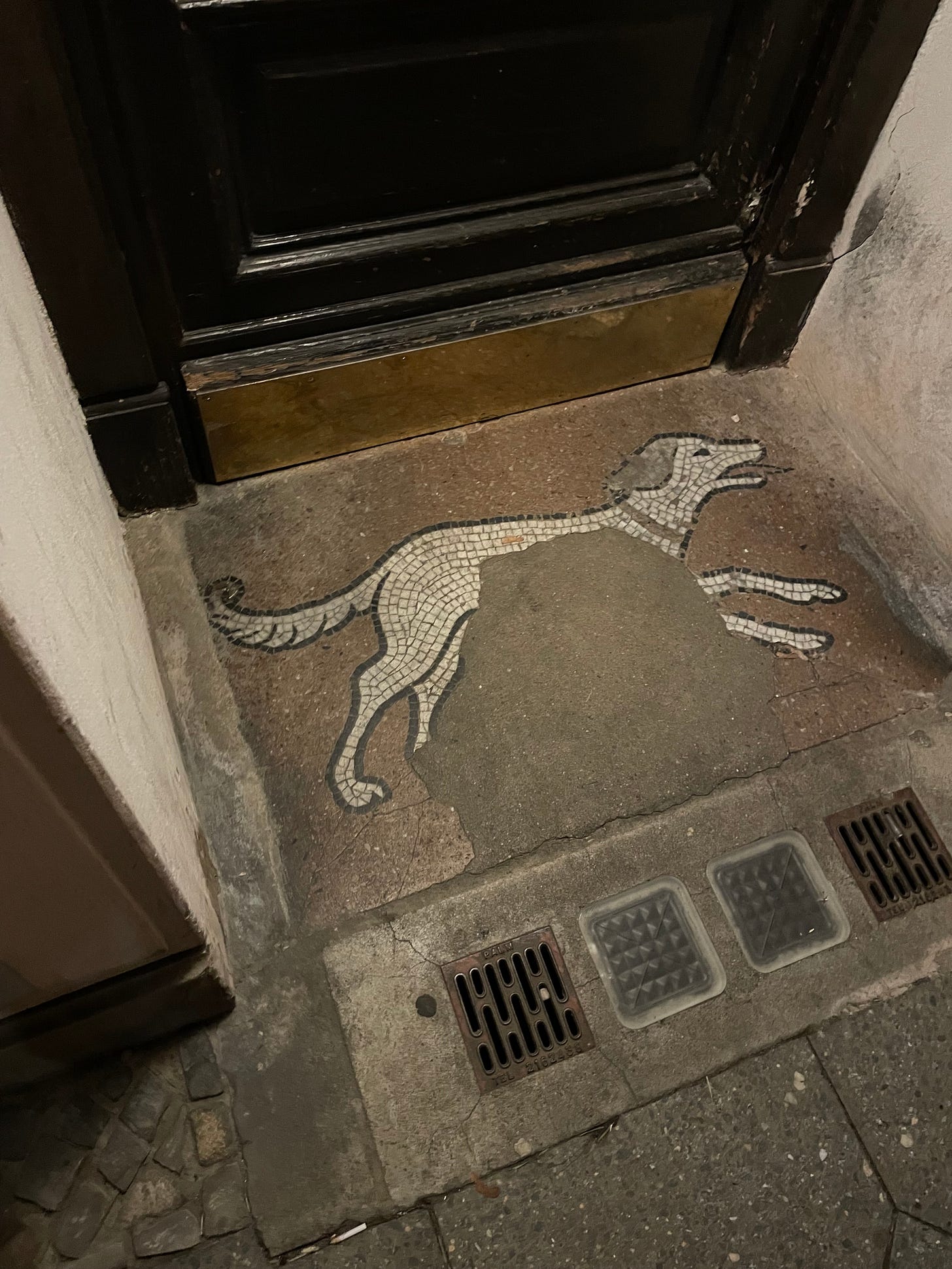
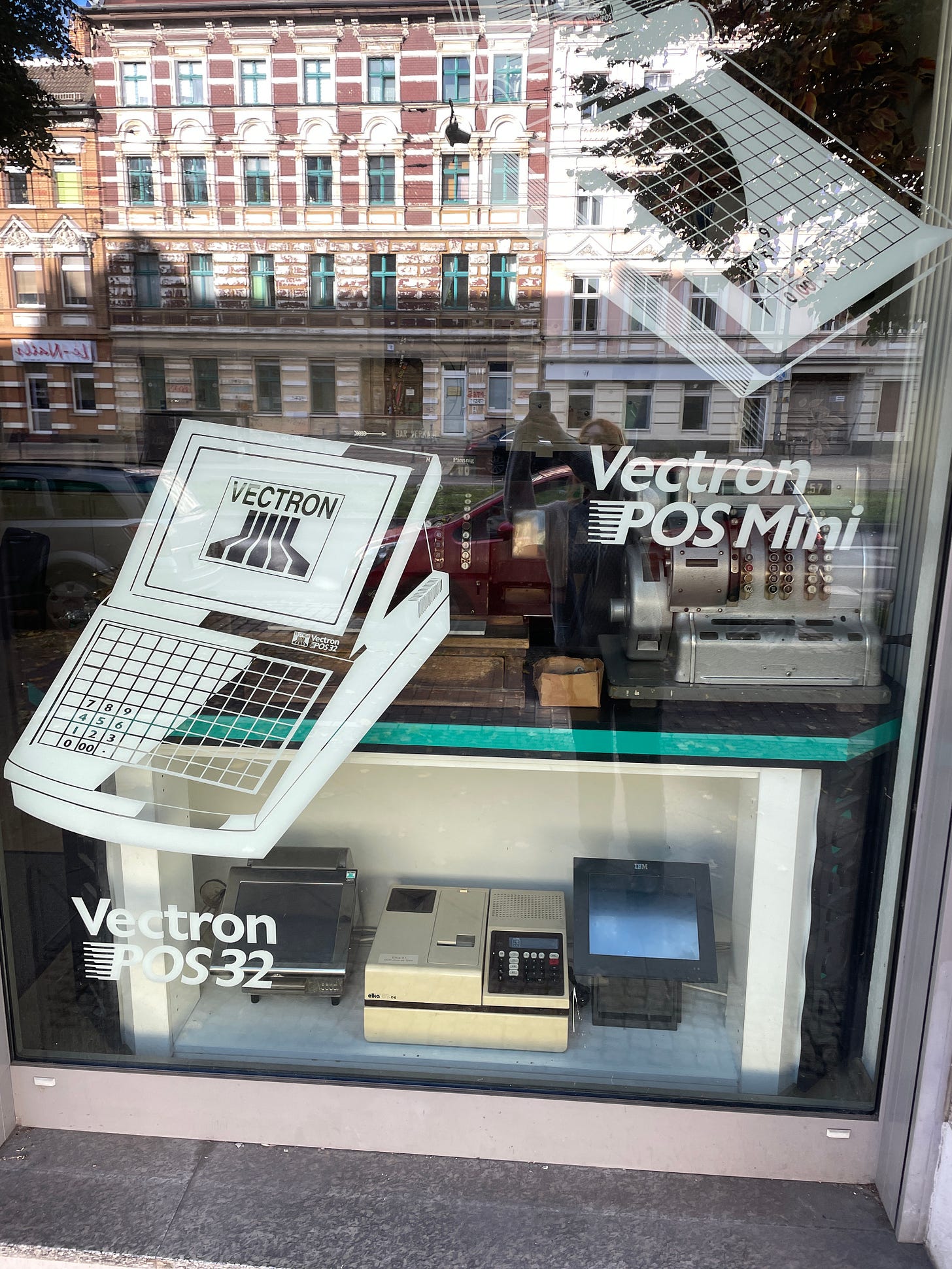
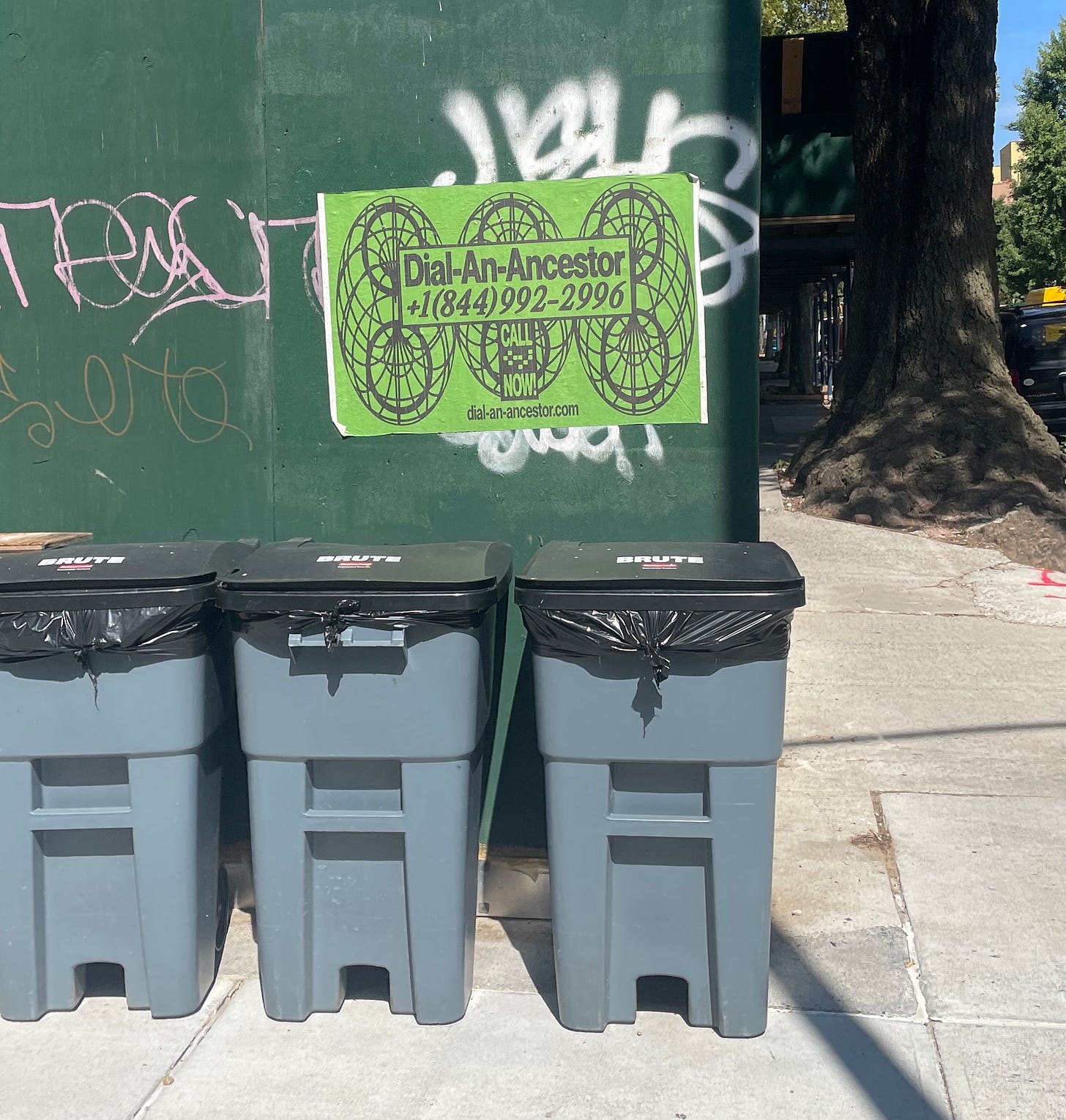
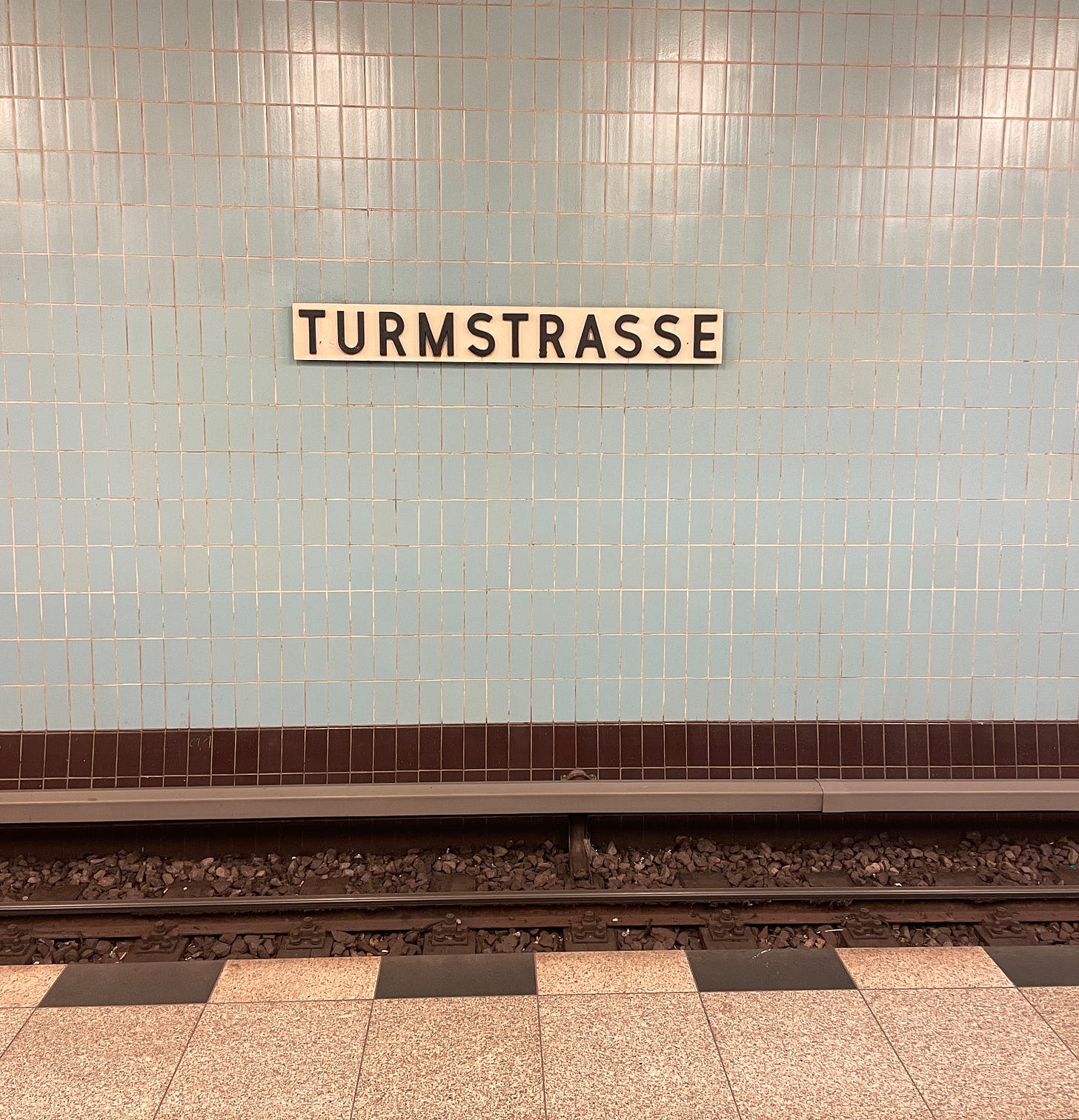
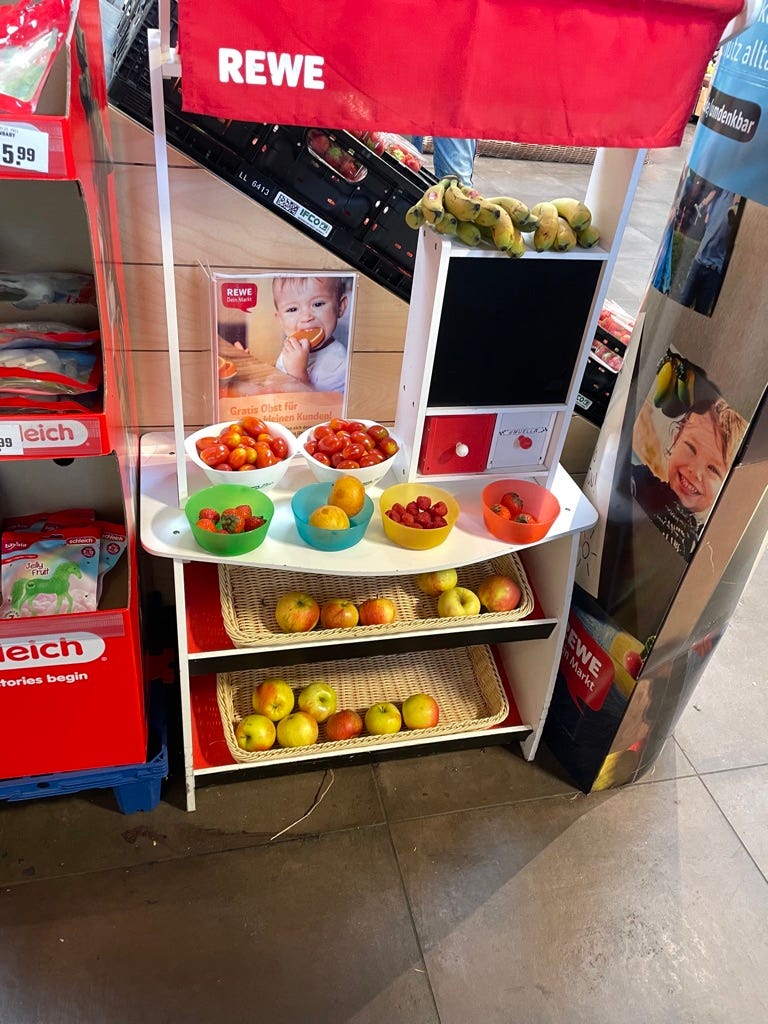
hi charlie,
i just want to thank you for putting that specific kind of sensitivity into words. my refrain when i’m upset is that the world is too big, and that my body is too small to hold onto all of it. right now, i’m struggling with monotony that came with a huge life change and i can’t tell anyone what i’m feeling because i know i’ll represent it wrong. this essay was such a beautiful representation of everything i’ve been feeling and it came at the perfect time. i wish you all the best <3
-alissa
Such a beautiful piece. I resonate so much with my feelings getting lost in translation when trying to articulate myself.